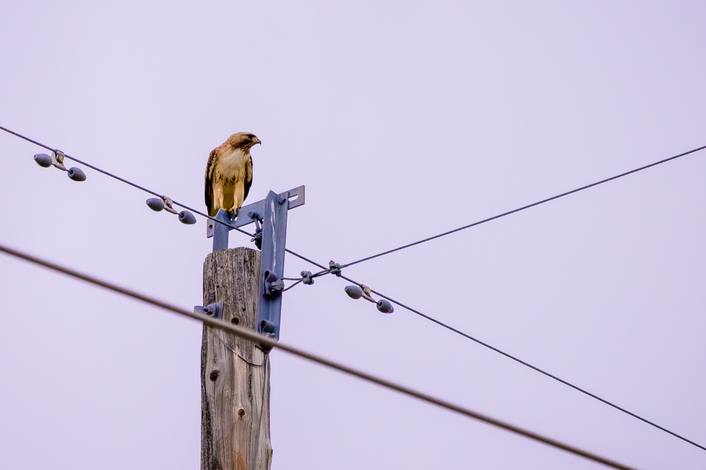Protecting Raptors from a Dangerous Perch

According to the University of Minnesota College of Veterinary Medicine, raptors are carnivorous birds that share three specific characteristics: keen eyesight, eight sharp talons, and hooked beaks. Members of the raptor family include eagles, hawks, and even vultures. Many raptors are protected species in the United States and power lines and poles present a unique danger to these particular avian species.
Raptors and Power Lines
The carnivorous nature of raptors makes them hunters and scavengers, which requires high perches and open spaces. Raptors tend to be attracted to light poles and wires as an easy place from which to scan the surrounding area for prey. Since power lines typically require easements, electrical wires become an even more tempting perch from which to survey the open ground for rodents, snakes, and other creatures.
Electrocution of Raptors
Sadly, a raptor landing on a power line or pole will often result in the bird's electrocution. It is estimated that between .9 and 11.6 million birds per year are killed by electrocution in the United States. In addition to the unfortunate death of the birds, the electrocution can cause costly power interruptions and damage to the electrical infrastructure. What's more, many raptors, such as eagles and migratory birds, are protected by federal law, so electrocution of raptors by power lines can result in additional expensive fines for electrical contractors. Luckily, preventive measures can be taken to avoid additional avian casualties.
Electrical Pole and Line Guards
At Critter Guard, we strive to keep local wildlife (and your power) safe. Our Pole Guards and Line Guards are designed to make electrical wires and poles less attractive roosting spaces for birds. The Line Guard's design includes a series of rollers that enclose the wire and rotate independently when pressure is applied, preventing the hapless bird from landing on the wire, and thereby encouraging the birds to roost elsewhere. With this design, both birds and electrical grids are protected in a humane and mutually beneficial fashion.
For more information about our products and protecting wildlife and power in your area, contact us today.
- Choosing a selection results in a full page refresh.


